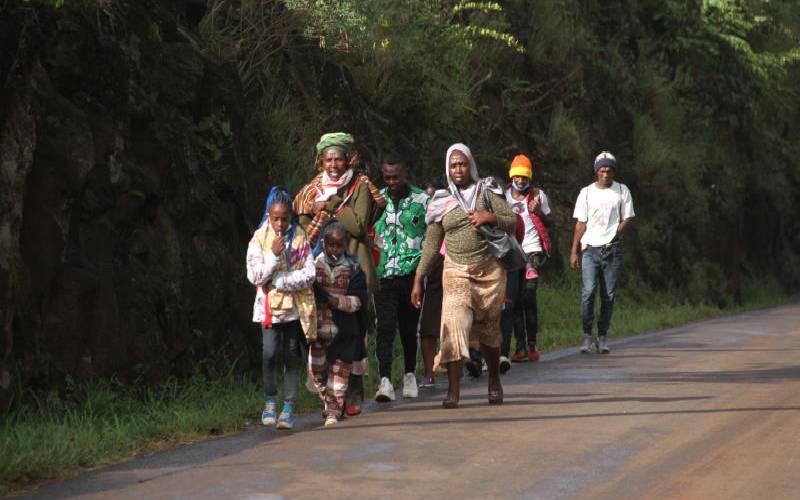×
The Standard e-Paper
Home To Bold Columnists

Dozens of people were on Monday caught unawares by the travel ban in and out of Nairobi Metropolitan Area effected by the State as it stepped up efforts to fight Covid-19.
During a televised address from State House in Nairobi, President Uhuru Kenyatta identified Nairobi, Mombasa, Kilifi and Kwale as counties targeted by the ban that is to be in place for 21 days. These are also the counties with the highest number of coronavirus cases, so far, with Nairobi topping the list.